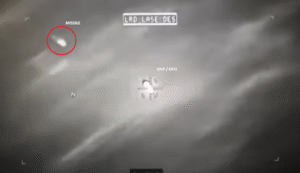What is nasal polyp removal surgery?
Surgery for the removal of a nasal polyp is called a nasal polypectomy. It is done when conservative treatment, such as steroids, does not provide relief. Nasal polyp removal is generally done by using a thin, long, and a flexible instrument called an endoscope (endoscopic surgery). The surgery is often done as an outpatient procedure.
nasal polyps images
What are nasal polyps and how do they affect my health?
They pop up inside your nasal passages or sinuses when the lining is inflamed and swollen for a long time. They can weaken your sense of taste or smell, and cause a runny nose, headache, and snoring. Often they grow big enough to cause infections or make it hard to breathe. Your doctor may suspect you have polyps because of your symptoms.
nasal polyps surgery
When is a nasal polypectomy necessary?
If you have nasal polyps with symptoms that have not responded to other therapies, a nasal polypectomy should be considered to remove the polyps. A CT scan of your head is typically performed to see to determine the extent and locations of polyps in your nasal passages and sinus cavities.
nasal polyps images
What do nasal polyps look like on CT scan?
Nasal polyps appear as small, greyish or pink, teardrop-shaped growths on the lining of the sinus cavity or nasal passages. You might also picture them as tiny peeled grapes. When viewing a CT scans of the sinuses, cloudy spots typically mean nasal polyps are present.
nasal polyps surgery
What are the benefits of endoscopic nasal polyps surgery?
The main aim of conducting this procedure is to improve airflow through the nasal passage as well as to improve sinus drainage. Endoscopic surgery will also help in clearing out almost all symptoms associated with nasal polyps, including improving the sense of smell and taste.
nasal polyps images
What does an otolaryngologist do for a child with nasal polyps?
The otolaryngologist examines the boy nasal passages. Painful sensations in the nose, polyps, adenoids and shortness of breath. Fractures of the cartilage tissue of the nose. Child at the pediatrician appointment Fractures of the cartilage tissue of the nose.
nasal polyps surgery
What is the complication rate of nasal polyp surgery?
The complication rate from nasal polyp surgery is lower than for general sinus surgery. You may notice slight bleeding from your nose for the few weeks. Your surgeon might arrange a follow-up visit about a week after the surgery to check how your nasal passages are healing and remove any crusts.
nasal polyps images
How do you get rid of nasal polyps?
Often they grow big enough to cause infections or make it hard to breathe. Your doctor may suspect you have polyps because of your symptoms. She can look up your nose with a tool called a nasal endoscope to see for sure. Drugs that you swallow or spray into your nose may help get rid of them. Antibiotics may help if you have an infection.
nasal polyps removal
How are nasal polyps treated?
The surgical removal of nasal polyps is known as nasal polypectomy. The procedure is mainly performed under local anesthesia or general anesthesia. The physician relieves congestion of the nose using oxymetazoline drops or pellets. The polyps are removed with the help of polyp forceps without injuring the surrounding tissue.
nasal polyps smell
Can nasal polyps affect your sense of smell?
Nasal polyps. Larger growths or groups of nasal polyps can block your nasal passages or lead to breathing problems, a lost sense of smell and frequent infections. Nasal polyps can affect anyone, but they’re more common in adults. Medications can often shrink or eliminate nasal polyps, but surgery is sometimes needed to remove them.



